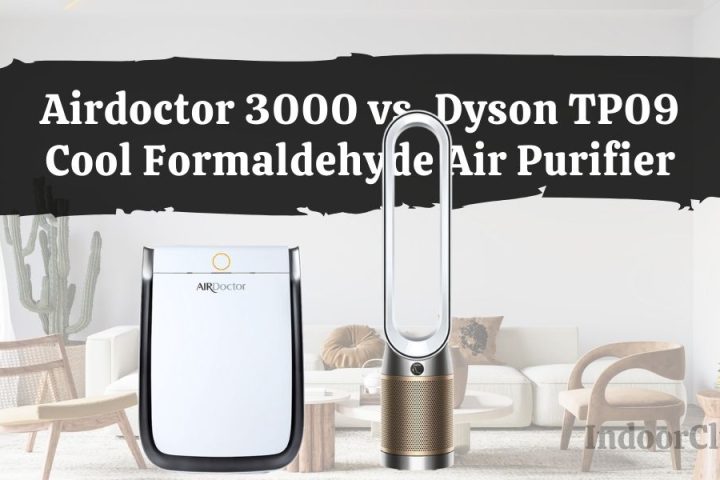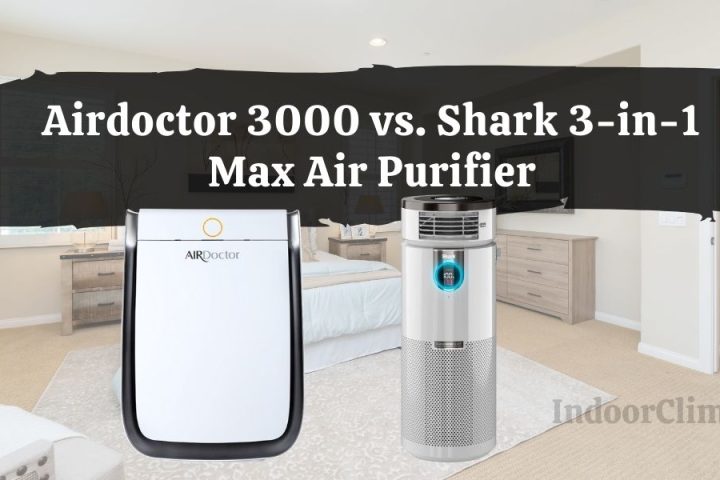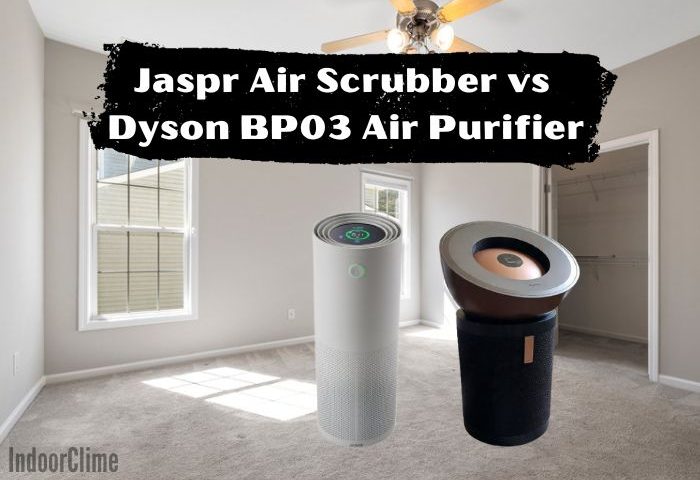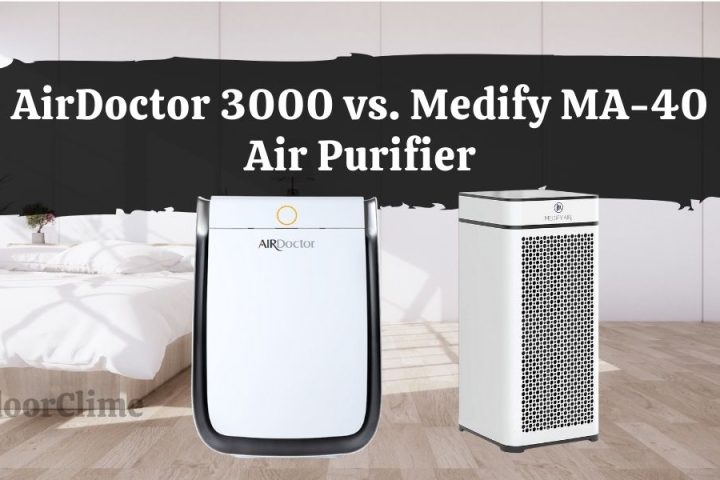Air quality is an essential concern for those who have asthma. Lung airways get inflamed after exposure to ultrafine airborne particles. As a result, asthma symptoms can range from delicate to severe, depending on the individual.
Asthma is a chronic lung disease that impairs the lungs’ ability to function normally, often leading to shortened breath, coughing, wheezing, and chest tightness.
This article looks at the effectiveness of air purifiers for people with asthma, what to look for in a purifier, and other ways to enhance indoor air quality.
Air purifiers can help with asthma by removing pollutants from the air. This will help reduce the amount of dirt breathed in over time, which may lead to less lung congestion.
Air purifiers have become increasingly common in treating asthma because they help clean the air of harmful particles and bacteria. In addition, to recirculate clean air into space, air purifiers filter airborne pollutants like dust or smoke.
What Are the Symptoms of Asthma?

Symptoms of asthma might differ from person to person. You might only experience symptoms occasionally, as when you exercise, or you might experience symptoms constantly.
Signs and symptoms of asthma include:
- breathing difficulty
- chest discomfort or stiffness
- When children with asthma, wheezing is a common symptom of the condition.
- inability to fall asleep because of coughing, wheezing, or shortness of breath
- episodes of coughing or wheezing made worse by a respiratory illness, such as the flu or a cold
Here are some indicators that your asthma may be becoming worse:
- more persistent and unpleasant asthma symptoms and signs
- a breathing test that measures how well your lungs are functioning shows that breathing is becoming more complex
- a more significant requirement for quick-relief inhalers
Certain circumstances can cause asthma symptoms and indications to worsen in some people:
- asthma brought on by exercise, which could get worse in cold and dry weather
- asthma is brought on by occupational irritants such as chemical fumes, gasses, or dust
- Pollen, mold spores, cockroach dung, or skin and dried saliva shed by animals are just a few examples of airborne allergens that can cause asthma.
Do Air Purifiers Help With Asthma?

Installing an air purifier in your home, where you spend a lot of time, is essential because there are so many asthma triggers indoors. A HEPA air filter purifies the air in your house of allergens and other airborne contaminants that may cause asthma attacks.
By removing the primary indoor triggers for asthma attacks, an air purifier will significantly reduce the frequency of asthma attacks you experience.
The benefit of more people utilizing air purifiers to treat their asthma is validating available high-quality goods. Additionally, air purifiers licensed for people with allergies and asthma are widely available. These asthma air cleaners guarantee cleaner air.
People living with asthma might benefit from air purifiers thanks to two different types of technology.
Bi-polar, Cold Plasma Ionization
Bi-polar air purifiers convert water vapor into positively and negatively charged ions using electricity. If, like most people, you haven’t discussed ions since high school, this refers to the composition of the air around you and what is in it.
Airborne particles can gather and fall out of the atmosphere by charging ions. Small fragments of irritants fall away. As a result, they are preventing inhalation.
HEPA
You may be more familiar with this: HEPA air filters for asthma employ forced air and a specific filter to capture even the smallest airborne particles.
As a result, all the allergens, particles, and volatile organic compounds (VOCs) are filtered out as the air circulates, bringing back clean and fresh air.
How Can Air Purifiers Help With Asthma?

As medical equipment for the treatment of asthma, air purifiers have not received FDA approval in the United States.
However, some studies indicate that using air cleaners to reduce exposure to typical asthma triggers can help regulate asthma symptoms. Air cleaners could accomplish this by:
Reducing The Burden Of Medication
Using an indoor air purifier daily at an elementary school reduced the number of contaminants in the air. Because of this, students with asthma experienced a lower “medication burden,” or the need to use fewer prescription drugs to manage their symptoms.
Minimizing The Harm Caused By Secondhand Smoke
The quantity of cotinine (the chemical your body produces after being exposed to nicotine) in the saliva of non-smoking people was reduced by air purifiers.
Inflammation Reduction
In a sample of asthmatic adults, indoor air purifiers reduced lung inflammation and increased indoor air quality.
Indoor air purifier cleaning seems to be a viable therapy alternative for individuals with asthma, and further study is needed to expound its function, the study’s conclusion read.
Raising The Standard Of Living
People with allergies and asthma did not consistently see an improvement in their quality of life by using air purifiers on their own.
However, the quality of life increased when HEPA vacuums were used with other strategies, like mold eradication.
What Air Purifiers Are Best For Asthma?
You might want to consider placing your air purifier in your living room or den if you’re trying to decide where in your home will benefit everyone – especially your family members with asthma.
Here are the 4 best air purifiers for asthma, in our opinion, based on careful market research in no particular order.
1. Alen BreatheSmart 75i with Carbon Air Purifier
The Alen 75i with Carbon, which purifies the air in space every 30 minutes, was created by NASA airflow experts.
At the same time, the carbon filter lessens pollutants, smoke, and aromas, and the True HEPA filter assists in purging your living room of allergens that may cause allergies.
The device is efficient in cleansing the air of viruses and germs. It boasts innovative WhisperMax technology for improved sleep, five-speed levels, and auto-adjusts based on airborne particles it detects.
2. AirDoctor 3000 Air Purifier
A big room can be cleaned with the AirDoctor 3000 up to 638 sq. ft. 4x/hour. This air purifier removes 99.7 percent of airborne particles as small as 0.003 microns and filters dangerous gases and chemicals from home.
Auto mode, intelligent particle sensor, and color-coded filter light indicators are all included with the AirDoctor 3000 air purifier. For larger spaces, there is an option to get AirDoctor 5500 model.
3. Coway AirMega 400 Air Purifier
The Coway AirMega Max2 filter, a True HEPA and activated carbon filter that can collect up to 99.99 percent of airborne particles as small as 0.3 microns, is a part of the Coway AirMega 400 air purifier.
Pet dander, pollen, dust, and mold are examples of this. A washable pre-filter is also included, which aids in capturing bigger airborne particles.
4. BlueAir Classic 605 Air Purifier
Up to five times each hour, the BlueAir Classic 605 Air Purifier will alter the air in the room. It features a True HEPA filter for allergy sufferers to catch pollen, dust, mold, and other allergens.
Additionally, it purges the air of bacteria and viruses and has dual protection filters that aid in purifying smoke and other pollutants. It has three fan speeds, is Wi-Fi capable, and can be managed using the BlueAir app or Alexa on Amazon.
Are HEPA Air Purifiers Good For Asthma?
Air purifiers with at least an H13-grade HEPA air filter can help you manage your asthma. Numerous studies demonstrate how effective air purifiers can reduce and control asthma symptoms.
However, you might want to avoid air purifiers with ionizers if you have asthma or turn it off if you can.
Asthma patients benefit from high-quality air purifiers because they eliminate pollutants, allergens, and other airborne asthma triggers.
Simply put, you won’t be inhaling triggers into your lungs if there aren’t any in the air. So in an ideal world, there would be no asthma symptoms.
Simply put, HEPA air purifiers purify the air by eliminating dangerous particles using very efficient filters.
Because these harmful particles frequently cause asthma symptoms, HEPA air purifiers benefit people with asthma. By removing the trigger, you can lessen your symptoms.
Can an Air Purifier Make Asthma Worse?

A category of air purifiers known as “ionic air purifiers” could aggravate your asthma symptoms. These are air purifiers that create ions and release them into the atmosphere.
The air is then circulated with these ions to eliminate and clean pollutants. Unfortunately, these ions can irritate the respiratory system, which is an issue for those with allergies or asthma.
Ozone is a byproduct of ionic air purifiers that those with respiratory illnesses may want to avoid. However, an evaluation by Environmental Health Perspectives found that ionizing air purifiers may release enough ozone to pose a health risk and be ineffective in removing indoor air pollutants.









